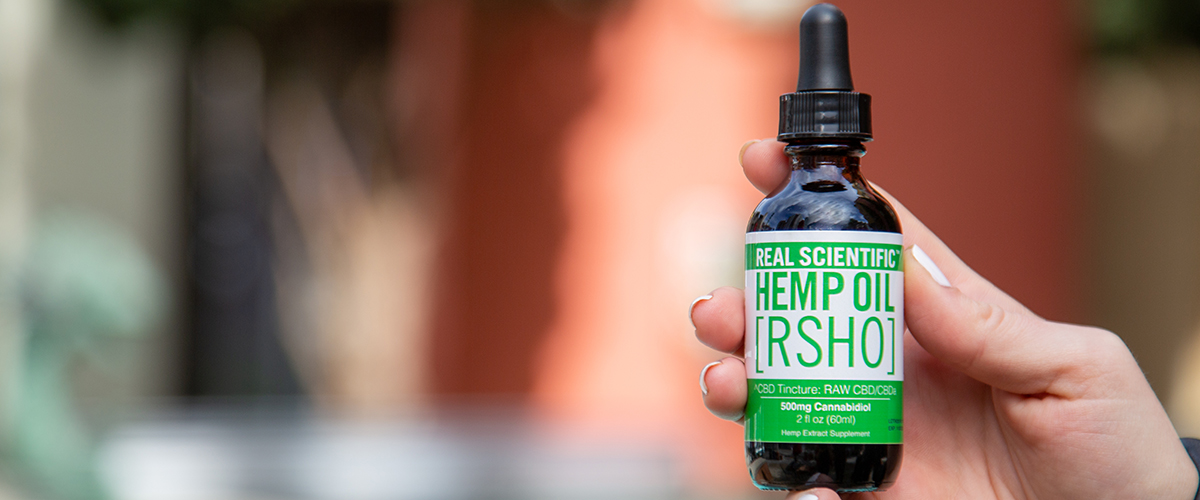A new report forecasts a giant year for hemp-derived CBD retail sales, with no signs of slowing down.
Growing sales of hemp cannabidiol (CBD) products show no signs of slowing.
A new report released by Hemp Industry Daily forecasts hemp-derived CBD retail sales will reach over $1 billion by the end of 2019, marking a 133 percent increase over 2018.
Hemp CBD products are used to naturally promote wellness and come in the form of CBD oil concentrate, CBD oil capsules, CBD oil tinctures, CBD vape oil, topical CBD oil body care products, and more.
“We expect that rising consumer enthusiasm for and awareness of CBD—combined with widespread, easy access to CBD products at traditional retail outlets—will drive a surge in CBD sales over the coming years,” the report’s authors wrote.
Hemp Industry Daily projects that retail hemp-derived CBD sales will continue to surge, from $1.2 billion in 2019 to $10.3 billion by 2024, representing a five-year compound annual growth rate of 54 percent. Following the rules of supply and demand, the surge is expected to last for the next several years as the CBD supply increases.va
The new report released this month adds to a growing body of evidence that the nation’s CBD industry is not slowing down. In May, BDS Analytics predicted U.S. sales of marijuana-derived CBD and hemp-derived CBD products combined would reach $20 billion by 2024.
In February, Bloomberg released a report which estimated nearly 7 percent of Americans currently use hemp-derived CBD products. The report also anticipated the continued growth of CBD users, reaching 10 percent of Americans by the year by 2025.
The Second Annual Hemp and CBD Industry Factbook can be found, here.
Hemp-Derived CBD and Marijuana-Derived CBD: What’s the Difference?
Hemp-derived CBD oil is legal and available in the U.S. without a doctor’s prescription and is made from high-CBD, low-THC hemp plants. When CBD is extracted from hemp, a variety of cannabis that contains only trace levels of the intoxicating compound THC (tetrahydrocannabinol) and therefore does not elicit any intoxicating feelings, it is referred to as hemp-derived CBD.
When CBD is extracted from marijuana, which contains higher levels of the intoxicating compound THC and in most cases elicits euphoric feelings, it is referred to as marijuana-derived CBD and is only available in states with legalized recreational or medicinal marijuana.
CBD Regulation Still in Limbo
With the dramatic increase in CBD sales, lawmakers and health officials are growing impatient waiting on formal CBD regulations to be handed down from the U.S. Food and Drug Administration (FDA). Hemp and hemp-derived products like CBD oil were made federally legal under the 2018 Farm Bill, signed into law last December.
“The U.S. Food and Drug Administration’s position is that CBD cannot be put into food, drinks or dietary supplements, only an FDA-approved pharmaceutical product. But the agency has left that position largely unenforced, leading to a proliferation of over-the-counter CBD products,” the Hemp Industry Daily authors wrote.
Because of the diversity of CBD oil products, many sold to promote health and well-being, it’s up to the FDA to establish rules on regulations on those products.
Earlier this year, the FDA requested public comments regarding the regulation of CBD and nearly 4,500 Americans responded, with most urging for accessible, safe, and affordable CBD products.
More on CBD and Cannabis
Get to know more about what cannabidiol (CBD) is and its benefits through our comprehensive overview, CBD Oil: The Basics.
Visit our news page for weekly reports on the latest cannabis news. Whether its cannabis policy, business or scientific research you are looking for, we have it covered.






